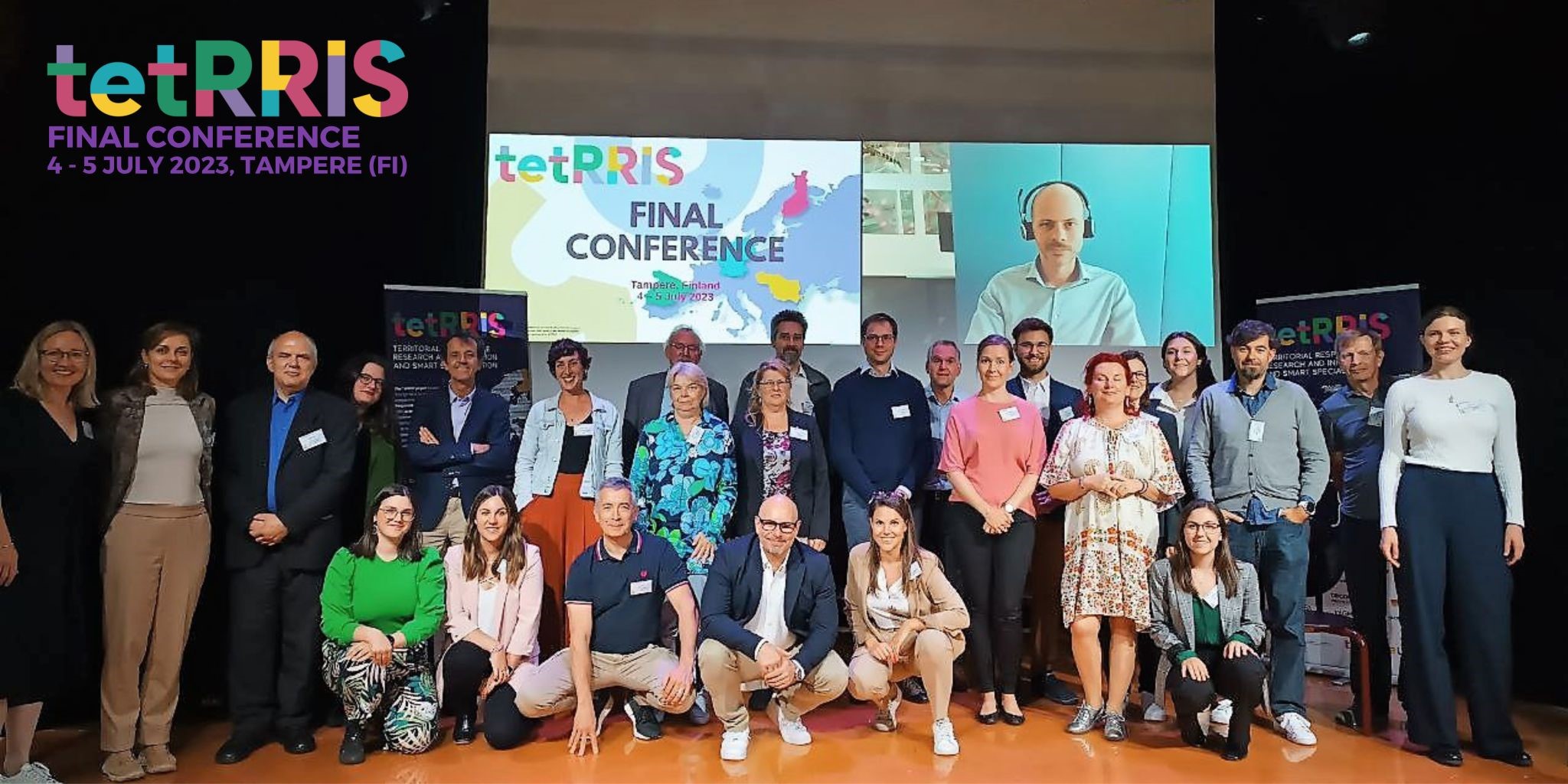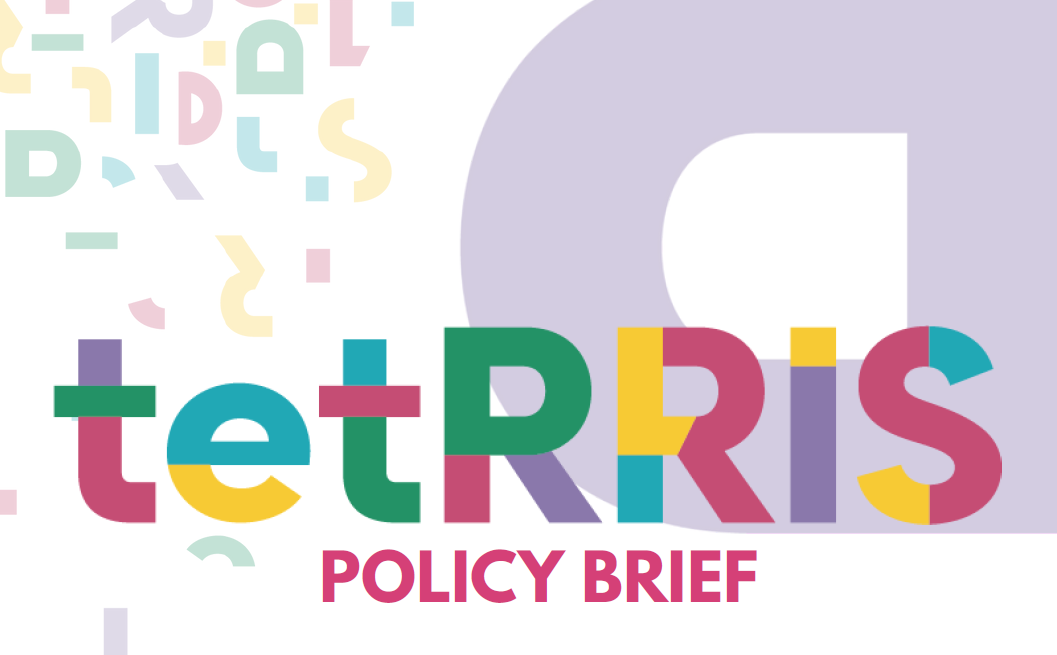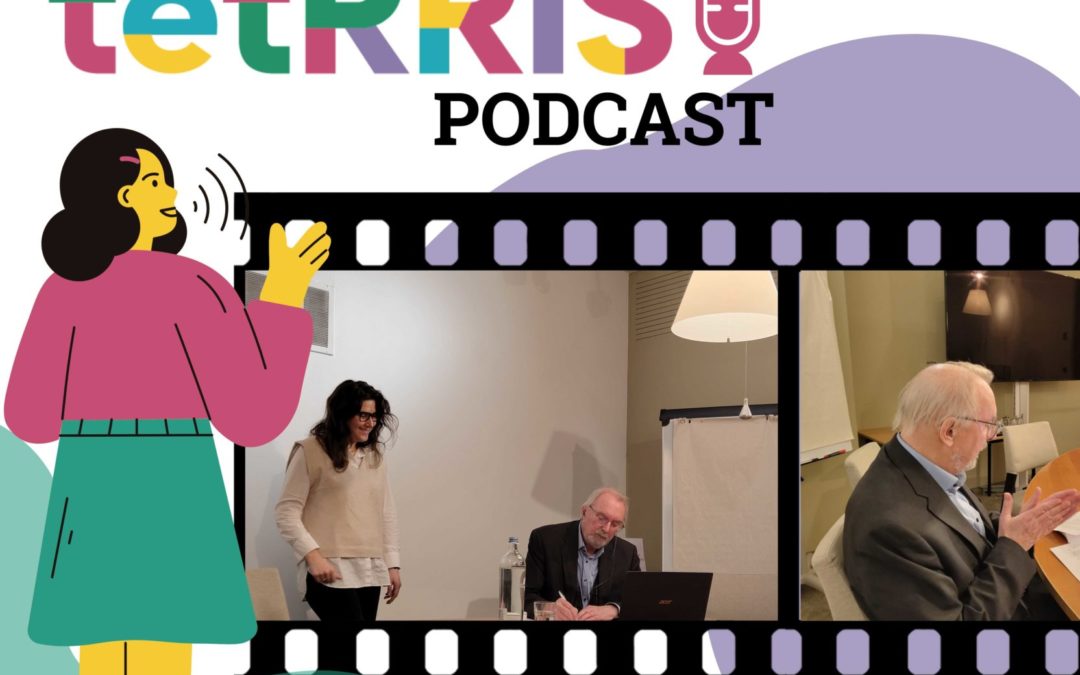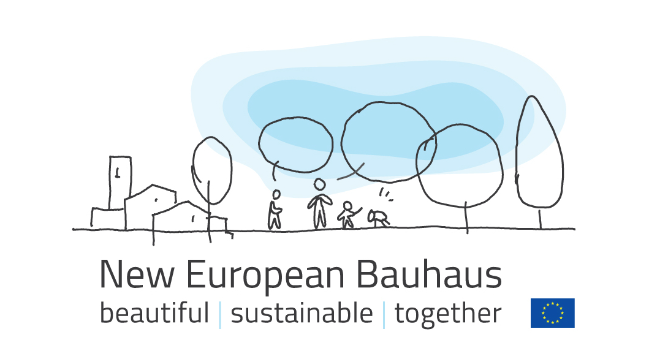The TetRRIS project closed the saga of in-person events with its Final Event, combining the final conference and the last Policy Lab, in Tampere (FI) on July 4 and 5, 2023.
The purpose of the two-day event was to continue the journey of in-depth study into the topics of Responsible Research and Innovation (RRI) and Smart Specialisation, with a focus on the integration of the concept of sustainability, innovation policy and policymaking, as well as to think about the future path to follow to foster RRI in Europe.
RRI is an approach that aims to align research and innovation activities with societal values, needs, and expectations. It emphasizes the importance of engaging stakeholders throughout the research process and considering the ethical, social, and environmental implications of the research outcomes. As we move towards a more sustainable future, there is a growing recognition that research and innovation must play a critical role in achieving sustainability goals. This requires a shift from the traditional S3 (Smart Specialisation Strategy) approach, which focuses on economic growth and competitiveness, to a more holistic S4 (Sustainability) approach that considers environmental and social sustainability as key components of innovation policy. This transition involves rethinking the innovation process to ensure that it addresses sustainability challenges and creates solutions that contribute to a more sustainable future.
Throughout the TetRRIS project, all partners and stakeholders have contributed to a better implementation of the application of these concepts in the four regions that make up our project: Szeged-Timisoara, Karlsruhe, Cantabria and Tampere. Thus, this last conference served participants to learn about the results obtained during the three years of the project in the application of these concepts in the real field and to set the path to follow in the upcoming years.
This hybrid event, which offers both online and in-person attendance, features several keynote speakers and practitioners who showcased their visions and understanding of RRI in different regional innovation systems.
The first day was opened by Silvia Abad, TetRRIS Project Officer of the European Commission, who addressed the European Research Agenda (ERA) and its 2022-2024 work programme. Specifically, four priority areas have been identified as drivers for 20 specific actions to be undertaken in the next 2 years: 1) deepening a truly functioning internal market for knowledge; 2) together for twin green and digital transition, and increasing society’s participation in the era; 3) amplifying access to research and innovation excellence across the union; 4) advancing concerted R&I investments and reforms.
In the morning session, a welcome note from the project coordinator Mika Nieminen, as well as an overview of the main results and learnings, guided the conversation. During the first year, the focus of the project was on background work and preparing pilots and approaches with regional partners. First, a conceptual framework and an analytical toolbox (“mapping tool”) were created to ensure a common understanding of RRI and of Regional Innovation Systems (RIS) within the TetRRIS consortium. Second, the “mapping” actions of each pilot territory took place: Interviews, document analysis, etc. Lastly, the identification of regional actors’ needs and challenges led to the co-designing of pilot actions matching these needs as well as to define the roadmaps for the action and the follow-up procedures.
Mika’s intervention has been complemented by Richard Tuffs, Member of the TetRRIS Advisory Board, who shifted our attention to the concept of Smart Specialisation Strategies (S3) and its new role. He highlighted the need of developing a quadruple helix connecting stakeholders in regional ecosystems.
After the coffee break, Nina Rilla from VTT hosted the first session about Twin Transition, which featured at first a presentation by Petri Räsänen followed by a panel discussion among several experts. Petri gave us an insight into the role of S3 in Tampere, pointing out several S3 practices for the twin transition in the territory: co-development and inclusive innovation and development platforms, communal shared spaces and resources, RDI infrastructures and learning environments across regional boundaries; and international investment cooperation and use of best practices. This introductory talk opened the space for a discussion with three other leading experts, representing the 4 pilot regions: Thomas Stahlecker, Senior Researcher at Fraunhofer Institute for Systems and Innovation Research ISI, Paloma González Álvarez, European Project Manager at IDIVAL Valdecilla Health Research Institute of Cantabria, Enikő Koppány, Agile Project Management at University of Szeged.
Following this, the second session was hosted and opened by Nicholas Martin, Project Manager at Fraunhofer Institute for Systems and Innovation Research ISI. Responsible and Sustainable Mobility was the topic addressed by four panellists: Lukas Kurzmann from the Karlsruhe Technology Region, Kari Kankaala from the City of Tampere, Tapani Touru from the Tampere Region and Tamás Gyulai from DARINNO Regional Development Agency. They all agreed that the concept of sustainability entails ecological, social and economic dimensions, which are multifaceted and may be in tension. Responsible sustainable mobility development means taking these trade-offs & complexities seriously, and making deliberate, ethically-informed choices; it does not mean we do not have to choose or prioritise.
To break up the day, an interactive and engaging pitching session was carried out by some regional stakeholders and project partners. Lisbet Frey, ex-project partner and current Project Manager at DIMECC, presented her company by addressing the concepts of Corporate Sustainability in Innovation Ecosystems. Afterwards, the Entrepreneurial Discovery Process was pitched by Ignacio Abaitua from SODERCAN, who explained that Cantabria progresses in the field of Industry 4.0, Blue Economy, sustainable tourism, and bioeconomy. Following this, Eva Balogh representing the Dutireg Digital Innovation Hub, showcased the Science, Technology and Educational Platform for Photonics – STEPP’s commitment to Hungarian innovation development. Furthermore, Raluca Cibu-Buzac presented several tools for innovation and stakeholder management developed in her own company Lumispino. Besides, a face already known to the project also joined this event: Rosa Arias introduced the Science for Change initiatives, a knowledge-based social enterprise, expert in collaborative research, evidence-informed policies and excellent science communication towards the 4 helices. Lastly, the Karlsruhe Region representative Petra Jung-Erczeg briefly explained the activities for the development of a Regional Bioeconomy Strategy carried out in the region stressing the importance of Cluster formation and sensitisation plant fibres for regional value chains.
The third and last session of the first day about Sustainability of Industry was moderated by the Coordinator Mika and featured, at first, Harri Nieminen as keynote speaker, flanked by Clemes Rohde and Nicholas Martin from the Fraunhofer Institute and Mariana Nagy from the University “Aurel Vlaicu” Arad.
The second day of the TetRRIS Final Event revolved around group workshops, organised by TECNALIA, in the framework of the last Policy Lab.
Project partners and regional stakeholders had the chance to work together in two exercises: the creation of policy recommendations about RRI implementation, and the reflection about best practices and tools to be developed in order to spread RRI in regions. Ralf Lindner from the Fraunhofer Institute then gave an interesting presentation about Mission Oriented Innovation Policies (MOIP) emphasising how they have been conceptualised by various approaches at different levels to address the need for transformative change.
The events ended with a guided tour of the Tampella neighbourhood and a visit to Demola‘s headquarters, a reality where a team of university students and company experts work together in an innovation challenge, in order to help companies to build a bridge with future decision-makers.
After a 3-year journey, results have been shared from the four TetRRIS pilot region representatives ad conclusions have been collectively reached: the role of changed leaders should be recognised and leveraged; RRI notions should be translated into something tangible and brought into the social concern; within Smart Specialisation, priorities and mission approach are interlinked in order to properly define goals and objectives; the shift from S4 towards S5 is possible only incorporating the societal dimension: how to look at science and innovation to solve society issues?
In order to know how TetRRIS will implement RRI and S4 concepts in the future, stay tuned on our channels in the upcoming months!
Hits: 560





0 Comments